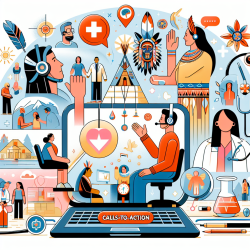The COVID-19 pandemic has placed unprecedented stress on healthcare systems worldwide. As healthcare facilities reached their capacity limits, the demand on healthcare workers (HCWs) soared. This blog explores the ethical obligations and practical strategies to support HCWs during such crises, drawing insights from the research article "Ethical obligations for supporting healthcare workers during the COVID-19 pandemic."
The Ethical Framework: Justice and Reciprocity
The research emphasizes that healthcare workers must receive adequate support and protection from society. This is not just a matter of justice but a reciprocal obligation. Society relies on HCWs to manage public health crises, and in return, HCWs should be able to depend on societal support to maintain their mental and physical well-being.
Key Ethical Considerations
- Moral Responsibility: While HCWs have a moral obligation to care for patients, this should not demand heroism or self-sacrifice. The societal contract must balance these obligations with reciprocal support.
- Protection from Legal Action: HCWs should not fear legal repercussions for providing crisis standards of care when resources are limited.
- Prioritization for Vaccines: Prioritizing HCWs for vaccines is justified by their instrumental value in maintaining healthcare systems.
Practical Strategies for Supporting Healthcare Workers
Implementing strategies to support HCWs is crucial for sustaining healthcare systems during pandemics. Here are some recommended approaches:
Mental Health Support
- Counseling Services: Providing access to trauma psychologists can help mitigate psychological distress.
- Promoting Self-Care: Encouraging activities like meditation, exercise, and creative arts therapy can enhance mental resilience.
Workplace Adjustments
- Adequate Protective Equipment: Ensuring sufficient PPE is critical to protect HCWs from infection.
- Task Redistribution: Shifting non-essential tasks away from clinical staff can reduce workload and stress.
Community and Societal Support
- Family and Friends: Emotional support from loved ones is vital. Encouraging HCWs to seek help when needed can prevent burnout.
- Public Compliance with Health Measures: Society's adherence to social distancing and mask-wearing reduces strain on healthcare systems.
The Role of Research in Enhancing Support Mechanisms
The research highlights the importance of ongoing studies to understand better how to support HCWs effectively. Practitioners are encouraged to engage with current research and contribute to developing evidence-based strategies that address both ethical obligations and practical needs.
Ethical obligations for supporting healthcare workers during the COVID-19 pandemic
The insights gained from this research are invaluable in shaping policies that protect and empower healthcare workers. By fostering a collaborative approach between practitioners, policymakers, and society, we can build resilient healthcare systems capable of withstanding future challenges.
To read the original research paper, please follow this link: Ethical obligations for supporting healthcare workers during the COVID-19 pandemic










